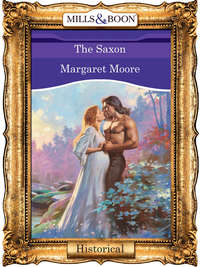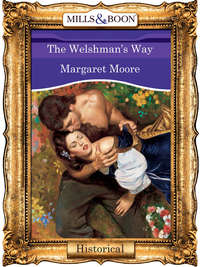
Полная версия
Regency: Rogues and Runaways: A Lover's Kiss / The Viscount's Kiss
What more could there be, if Madame de Malanche had been the source?
Would it look odd if he refused? Would it make Juliette more interesting to this young rogue and the other dandies of the ton if he kept her hidden away?
Yet who knew what Juliette might do or say to such a fellow? What if she lost her temper? What if she didn’t?
“If you’d rather not…” the young fellow began, his brow furrowing.
That suspicious expression was enough to sway Drury’s decision. Better to let him meet Juliette than make her a mystery. “Very well, Mr. Gerrard. As I’m sure you’re also aware, we’re staying with Lord Bromwell for the time being.”
He gave him Buggy’s address. “Present yourself tomorrow morning at nine o’clock and I will introduce you to my cousin.”
Then Sir Douglas Drury’s lips curved up in a way that had made hardened criminals cringe. “And might I suggest that if you’re serious about pursuing a legal career, you refrain from making wagers with barristers.”
Early that evening, Juliette bent over the napkin she was hemming in the elegant drawing room. The light would soon fade and she wanted to finish before it did.
All her life she had wondered what it would be like to be a lady—to have everything you needed, to never have to work or lift a hand, to have beautiful clothes and servants at your beck and call.
Well, she thought with a rueful smile, she’d discovered that while it was certainly delightful to be well fed and have pretty clothes, it was otherwise terribly boring. Now she could understand why the young ladies who’d come into the shop seemed so excited by the prospect of a new hat or the latest Paris fashion and bit of gossip. If she had nothing else to do with her time, her clothes might become vitally important, and gossip as necessary as food.
After spending hours by herself during the better part of two days, she’d finally gone to the housekeeper and asked if there was some sewing she could do. It would make her feel less beholden to Lord Bromwell for his kindness, and she was good at it, she’d explained, which was quite true.
“His lordship’s guests don’t work!” Mrs. Tunbarrow had cried, regarding her with horror, as if Juliette had proposed embalming her.
Undaunted and determined, Juliette had persisted, using her most persuasive manner—the same manner she’d used when asking questions about Georges in Calais, bargaining for passage on the ship to England, haggling for that small room in the lodging house and persuading Madame de Pomplona to give her work.
Mrs. Tunbarrow had reluctantly agreed at last and given Juliette napkins to hem, probably thinking she could have them resewn if Juliette proved incompetent.
“I’ll wait in the drawing room.”
“Merde!” Juliette whispered with dismay, for it wasn’t Lord Bromwell come back from one of his many meetings trying to arrange his next expedition.
Sir Douglas Drury had returned.
Chapter Seven
Didn’t even see her until it was too late. Had no idea she could be so quiet.
—from the journal of Sir Douglas Drury
Juliette didn’t want to see Sir Douglas, and she especially didn’t want to be alone with him in the drawing room. She hadn’t been alone with him since his friends had come to dinner. She hadn’t even spoken to him, unless she hadn’t been able to avoid it.
For an instant, she thought of fleeing, but her lap was covered with her sewing and she would have to pass him to get out of the room.
All she could do was shrink back into the wing chair, grateful it was angled toward the hearth and not the door, and pray he would not come in. Or if he did, perhaps he wouldn’t see her until Millstone came to summon them to dinner, whenever that might be. The meal would wait until Lord Bromwell returned from his many meetings. Apparently planning a scientific expedition required such efforts, even if one was rich.
Then the door opened and she heard Sir Douglas’s familiar tread upon the floor before he got to the carpet.
He stopped. Had he seen her? Had he realized they were alone? What was he thinking if he had?
Who could ever tell what he was thinking?
She was too nervous to sew, so she sat as still as a statue with the napkin on her lap, the sewing basket on the table beside her.
Sir Douglas still hadn’t spoken, and she hadn’t heard him come any closer. Perhaps he’d realized she was there and left the room. It would be rude, but not surprising, and she could only be grateful if he intended to ignore her the whole time she was Lord Bromwell’s guest. Sir Douglas had been ignoring her very well lately—which was just what she wanted after his passionate, insolent kiss.
She got an itch in the middle of her back. A terrible, irritating itch. She was going to have to move, or squirm.
Was he there or not?
She couldn’t wait. She had to scratch. Even so, she moved slowly and cautiously, until she reached the spot.
What was that little noise? It wasn’t from her clothes as she scratched. Curious but wary, she peered around the side of the chair.
Sir Douglas stood at the mahogany table in the center of the room, idly flipping through the pages of an illustrated book about insects that Lord Bromwell had left there.
It was not an easy, simple thing for him. At meals it was obvious his fingers lacked flexibility, and they seemed even more stiff today. Nevertheless, he was smiling as she’d never seen him smile before.
There was no challenge in it, no mockery, no sense of superiority, no hint of seduction. He looked relaxed and amused, far different from the stern, arrogant, ungrateful barrister. Different, too, from the man who had kissed her so passionately.
Was this what he’d been like before the war that had changed so many people?
He glanced up and caught her watching him and his smile disappeared. “Good evening, Miss Bergerine. I didn’t realize you were here. You should have said something.”
“I didn’t want to disturb you,” she replied, attempting to betray nothing of her feelings, whatever they were. “You seemed so interested in Lord Bromwell’s book.”
He shut the tome abruptly, like a little boy caught with illicit sweets in his pockets.
Emboldened by that image, she said, “I didn’t mean to disturb you. Do you like insects, too?”
“Not the way Buggy does,” he replied.
He glanced at the chair opposite her, then picked up the book and started toward it.
The volume began to slip from his fingers. As he tightened his grip, he winced as if in pain, and it tumbled to the floor, hitting the carpet with a dull thud.
Forgetting the napkin, she hurried to pick it up and hand it back to him, only to find herself looking into a pair of cold, dark, angry eyes.
“Thank you,” he growled, and she wondered if he hated being reminded of the limitations of his hands, or if it was because he didn’t like her.
She didn’t care what he thought of her. She was here because he had enemies who were also after her, not because she wished to be.
Picking up the napkin, she resumed her seat and once again began to sew, this time with steady hands. “Have you any news of the men who attacked us?”
“No,” he replied as he sat across from her and opened the book. “What are you doing?”
She glanced up at him, surprised because it was obvious. “Hemming napkins.”
“Surely Buggy didn’t ask you to do that.”
“Non,” she answered, intent on her work even though she was well aware he was watching her instead of looking at his book. “I am not used to having nothing to do and find I do not like to be idle. So I went to the housekeeper and asked her if she had any sewing I could do. In a small way, it gives me a chance to repay Lord Bromwell for letting me stay here—although it is not my fault I must.”
“I apologise for the inconvenience,” Sir Douglas replied, annoyance in his deep voice.
If he was angry, she didn’t care. “Lord Bromwell—why do you call him Buggy? It is not a nice nickname, I think.”
“Because he’s always been fascinated by spiders. When we were at school, he used to keep them in jars by his bed.”
She shivered. She hated the eight-legged creatures. “How unpleasant.”
“It was, rather.”
He said nothing more, and neither did she, but sewed on in silence until she finished the last few stitches of the final napkin. As she reached for the small scissors to cut the thread, he closed the book with a snap.
“What are you doing in London, Miss Bergerine?” he demanded, his question just as loud and unexpected.
“Why should I not be in London?” she retorted. “Is it forbidden for a young woman to travel here if she is French?”
“It’s damned unusual.”
He sounded very angry, but she would stay calm. And why not tell him? She was not ashamed of her reason. “I came here looking for my brother, Georges.”
There was a long moment of silence before Sir Douglas answered, and his intense gaze became a little less annoyed. “I assume you haven’t been successful.”
“Regrettably, non.”
Another long pause followed, during which she refused to look away from his now inscrutable face.
Eventually he spoke again, slowly, as if weighing every word. “I have certain resources, Miss Bergerine, the same ones I’m using to try to find the men who attacked us. I shall ask them to include locating your brother in their efforts, as a further expression of my gratitude for saving my life.”
She could only stare at him, not willing to believe he would be so generous. “You would do that for me?”
He inclined his head.
Despite her reservations about accepting a gift from such a man, relief filled her. She had been so long alone in her search.
And then came renewed hope, vibrant and bright, like a torch suddenly kindled in the darkness.
Overwhelmed by her feelings, she threw herself on her knees in front of him, and reached for his hand and pressed her lips upon the back of it. “Merci! Merci beaucoup!”
He tugged his hand away as if her lips were poison and got to his feet. “There is no need for such a melodramatic demonstration.”
It was like a slap to her face. Abashed, but resolved not to show how he had hurt her, she rose with all the dignity she could muster. “I am sorry if my gratitude offends you, but you cannot know what this means to me.”
Sir Douglas strode to the hearth, then turned back, his hands clasped behind him, his expression unreadable. “No doubt I do not. Now please describe your brother so that I may tell my associates.”
It was to be a business transaction then. Very well. “He does not much resemble me,” she began. “He is taller than I, about six feet, with brown hair that is straight, like a poker. His eyes are blue, and he is thin.”
“Do you have any idea in what part of London they should begin their search?”
“No. The last news I had of him was from Calais. He wrote that he was coming to London, but he didn’t mention any particular part, or if he was meeting anyone.”
“He hasn’t written to you from here?”
“No.” She looked away, for what she had to tell Sir Douglas next was difficult to say, and it would be easier without his dark eyes watching at her. “His last letter was forwarded by a priest in Calais to Father Simon in our village.”
She took a moment to gather her strength, to be calm, before continuing. “This priest wrote to Father Simon saying that Georges had been killed, found stabbed to death in an alley. A letter to me was in his pocket.”
She looked up at the barrister, whose expression had not changed. “You are probably wondering why I do not believe that my brother is dead. A part of me thinks I should, that I must accept that Georges is gone, like Papa and Marcel. But I didn’t see Georges’s body and the priest who wrote the letter didn’t describe it. He simply accepted that the letter found on the dead man belonged to him, so that man must be Georges. But what if he was wrong? Perhaps Georges was robbed of money and the letter, too, and it was the thief who was killed.
“So I went to Calais. The priest who wrote the letter had died of an illness before I got there, and nobody remembered much about the man in the alley, except that he had been robbed and stabbed.”
“So you came to London hoping your brother was alive and somewhere in the city based on his last letter to you?”
“Oui. A fool’s errand, perhaps,” she said, voicing the doubts that sometimes assailed her, “but I must search and hope.”
Or else I am alone.
“Your quest may prove to be futile,” Sir Douglas replied, his voice low and unexpectedly gentle, “yet I cannot fault you for trying. No one should be all alone in the world.”
“No one,” she agreed in a whisper, regarding the man before her who, even with his friends, always seemed somehow alone.
“Sir Douglas, Miss Bergerine,” Millstone intoned from the threshold of the drawing room, interrupting the rapprochement they’d achieved, “dinner is served.”
Well after midnight, Drury stood by a tall window in his bedroom and raised his hands to examine them in the moonlight. Although he generally avoided looking at them, he knew every crooked bend, every poorly mended bit.
He remembered the breaking of each one, the pain, the agony, knowing that nothing would be done to set them and repair the damage. That when his tormentor was finished with him, he would be killed, his body either burned or thrown away like so much refuse.
He remembered the flickering flames casting light and shadows on the faces of the men surrounding him. The ones who held him down. The one who did the breaking.
He remembered their voices. The guttural Gascon of one, the whisper of the Parisian, the earthy seaman from Marseilles. The one who wielded the mallet, so calm. So deliberate. So cruel.
With a shuddering breath Drury lowered his hands, splaying them on the sill. Once, he had been proud of his hands. The slender length of his fingers. The strength of them.
He remembered the excitement of brushing their pads, oh, so lightly, over a woman’s naked skin, and the woman’s sighs as he caressed them.
Since his return, he had had lovers. More than one. He was, after all, still Drury, with his dark eyes and deep, seductive voice. He was still famous for his legal abilities, and for other abilities, too.
But never since he had returned to England had a woman deliberately touched his hands. Certainly no woman had kissed them.
Until today.
He was well aware that Juliette Bergerine had done so in the first flush of gratitude. No doubt if she’d had time to think, she wouldn’t have done it.
But she had.
She had.
She believed him ungrateful, and he had been, that first day. She thought him arrogant, too.
She had no idea how that kiss had humbled him, and the gratitude that had welled up within him at the touch of her lips on his naked flesh.
She would never know.
Yet he would reward her for a kiss that was worth more than gold to him. If her brother lived, he would do all he could to find him.
Starting at first light.
Juliette wanted to move, but she couldn’t. It was dark, as if she were in a cave, and she was wrapped up like a mummy, her arms held to her sides. Turning her head from side to side, she realized she was caught in something—a spider’s web, sticky and soft. Everything else around her was dark.
“You can’t have him.”
A woman’s voice. Not kind and gentle. Harsh, triumphant, mocking.
“He’s mine. I have only to say one word, and he will be mine forever.”
Lady Fanny’s voice, distorted. Ugly. “Did you think he could ever really care for you, you French trollop? Do you think I don’t see how you secretly desire him, a man so far above you in rank, education and wealth? Do you think you could ever take my place in his heart?”
“Non!” Juliette protested, struggling to get free. Determined to get free. “He doesn’t love you. He told me so.”
The high-pitched laugh came out of the impenetrable dark. “And you believed him? You believe everything he says? Oh, my dear, he lies. He tells lies all the time, to you, to himself, to everyone.”
“He does not love you!”
“He doesn’t love you, either. He never will. He will use you and cast you aside. He does the same to all his women. Why should you be different?”
Juliette twisted and turned, fighting harder to get free. “Then he would cast you aside, too.”
“I wouldn’t let him. I would kill him before I let him go.”
Suddenly, light flared in the darkness and Juliette saw that she was not alone. His head bowed as if he was unconscious, like that first night, Sir Douglas hung on a cavern wall wet with moisture. He was encased in another web, the filaments spreading out like an angel’s wings while that terrible, cruel feminine laugh filled her ears.…
Juliette woke up, panting and sweating. It had been a nightmare. Another nightmare. Not of Gaston LaRoche in the barn this time, but of a demonic Lady Fanny who wanted Sir Douglas for herself. Who would kill him if she couldn’t have him.
“Did I wake you, miss? I didn’t mean to,” Polly said as she crossed the room to open the drapes.
Trying to sit up, Juliette discovered the sheets and coverlet were wrapped tightly around her, just like the spider’s web in the dream.
“I’ve lit a fire to take the chill off, and there’s hot water to wash,” Polly said, nodding at the jug and linen on the washstand. “It looks to be a lovely morning, miss.”
The window Polly opened brought a breeze and the slight scent of damp earth and leaves.
Juliette lay still and closed her eyes, wishing she was in the country. How long had it been since she’d walked past open fields, with cows grazing, occasionally lifting their heads to look at her with their large, gentle eyes? What she would not give for a walk in the open air, far away from London and Sir Douglas Drury, and the woman who sought to harm them both.…
Woman? It had been men who had attacked them.
Men could be paid.
Paid by a woman who was angry with a former lover? Who might be spiteful and jealous? Who might be enraged enough to wish to kill the lover who’d left her, as well as a rival for his affection?
Had Juliette not seen and heard enough of women to know that their jealousy could be as strong and fierce as any man’s? And that they were capable of great cruelty and malice?
She immediately got out of bed. “Is Sir Douglas at breakfast?”
“No, miss. He left at the crack o’ dawn. Lord Bromwell’s still in the dining room, though.”
Disappointed that Sir Douglas was not there, Juliette decided she could still tell Lord Bromwell her idea, so she quickly washed and submitted to Polly’s assistance with one of her new gowns. It was a very pretty day dress in bishop’s blue.
“Do you know when Sir Douglas might return?” she asked as Polly hooked the back.
“No, miss. Depends how long he’s at court, I suppose.” The maid sighed and shook her head as her hands worked with swift, deft skill. “I wouldn’t want to be questioned by Sir Douglas Drury in a courtroom, I can tell you—or anywhere else. A right terror in court, they say, although he never raises his voice or does anything theatrical like some of ‘em do. He just stands there as calm as can be and asks his questions in that voice o’ his until pretty soon, they wind up convictin’ themselves. They call him the Court Cat, you know, because even if he isn’t moving, it’s like he’s stalkin’ ‘em. Quiet, and then bang! They’re caught.”
Juliette had no trouble imagining this. “He wins most of the time?”
“He wins all of the time. The best there is at the Old Bailey.”
Once Polly was finished, Juliette left her to tidy the bedroom and walked down the long corridor toward the staircase. As she descended, she passed a footman who dutifully paused and looked at the floor. While she might get used to having somebody dress her hair, she doubted she would ever get used to the way the servants turned away when she passed, as if they were not even worthy to be seen.
She arrived in the dining room and found Lord Bromwell seated at the long table, dressed in plain clothes, reading a book, and with a plate of half-eaten eggs quietly congealing in front of him. Two footmen stood at either end of the long sideboard, where a host of covered dishes rested.
Lord Bromwell glanced up, smiled and rose in greeting. “Good morning, Miss Bergerine!” He frowned. “You look tired.”
“I had a bad dream.”
“How unfortunate! Come, have some tea. It’s just the thing to give you a little vitality. I’d steer clear of the kidneys, though.”
No need to tell her that, Juliette thought, her stomach turning at the thought of that revolting English dish. “Just toast, please,” she said, heading to the sideboard.
“Have a seat and I’ll get it,” the nobleman offered with his usual kindness.
As he set a plate with toasted bread before her, Millstone appeared at the entrance to the paneled room, a silver salver in his hand and something akin to annoyance in his eyes. “I beg your pardon, my lord. There is a gentleman here who refuses to leave, even though I told him you are at breakfast and planning to depart in an hour.”
Juliette hadn’t heard about any journey. “You are leaving?” she asked the young nobleman.
“I have to go to Newcastle for a few days. Lord Dentonbarry may contribute to my expedition, if I can make it clear to him why he should.”
Juliette couldn’t help wondering that herself. After all, what good could spiders do anyone?
Lord Bromwell grinned, looking very youthful despite the wrinkles around his eyes which were neither completely blue nor gray, and the well-fitting morning coat that accentuated his broad shoulders.
“It seems odd to you, I’m sure,” he said. “But all knowledge is useful in some way. And consider the spider’s web, Miss Bergerine. Given its size and weight, the fibres are incredibly strong, yet very flexible. If we could figure out why, it would be very useful knowledge, don’t you agree?”
She had never thought of a spider’s web as useful before. They had always been nuisances, strung across a path, or cobwebs in corners. Or things to frighten her in her dreams.
Millstone cleared his throat. “The visitor, my lord?” he prompted.
“Oh, yes.” Lord Bromwell studied the card. “Mr. Allan Gerrard. I’ve never met the man.” He raised his eyes to Millstone. “What does he want?”
“He wouldn’t say, although apparently, my lord, he was expecting Sir Douglas Drury to be here.”
Lord Bromwell brightened. “Oh, he’s probably come to see Drury,” he said, as if that made everything all right. “Didn’t you tell him Drury’s gone to his chambers?”
Millstone cleared his throat with a delicacy that would have done credit to an elderly maiden aunt. “I did, my lord. He asked when Sir Douglas would be returning, and since I have no idea, I said I didn’t know. Then he asked if your lordship and Miss Bergerine were here.”
It was clear Millstone didn’t approve of the young man, or having to interrupt Lord Bromwell at his breakfast.
Lord Bromwell didn’t seem as concerned about that as confused by the man’s request. “Miss Bergerine?” he repeated.
“Yes, my lord,” the butler replied. “I told him I would inquire if you were at home.”
A wild, hopeful notion burst into Juliette’s head. Perhaps Sir Douglas had asked this man here because he could help find Georges.
She rose swiftly. “I will be happy to meet this Mr. Gerrard.”
Lord Bromwell gave a good-natured shrug. “Very well, Miss Bergerine. Where have you put Mr. Gerrard, Millstone?”
“In the study, my lord.”
“Excellent. Come along, Miss Bergerine. Oh, and Millstone, I still intend to leave within the hour.”
Juliette had never been in the study of Lord Bromwell’s town house. Unlike the other rooms, however, it was not a pleasant chamber. It was too dark and too much the English gentleman’s, and it smelled strongly of tobacco.








